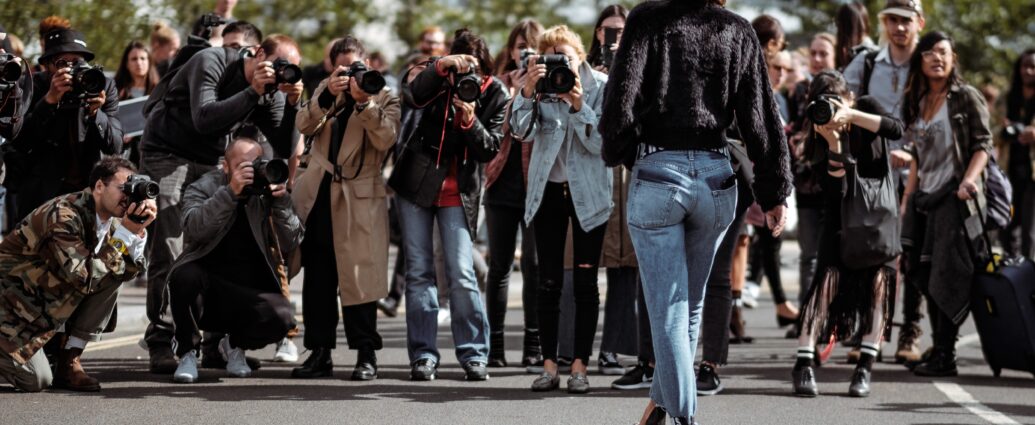Cara Rogers
Social media stars have millions, even billions, of followers, viewers, subscribers, and listeners. They’re on magazine covers, attending huge industry events, and earning vast amounts of money. But, despite immense popularity and great success in their respective fields, we continue to resist the idea that the new generation of social media stars has a legitimate claim to celebrity and success.
Defining Celebrity
In many ways, social media stars should be considered celebrities. They have plenty of fans, amass large wealth from their endeavours, and move in many of the same circles as “traditional” celebrities.
If celebrity is about being widely known, then social media stars go above and beyond in hitting this target.
Social media influencers boast huge followings, which in places “surpass Hollywood A-Listers”. Granted, social media isn’t everything, but it can be a useful indicator of who we’re paying attention to, and whose lives we’re invested in.
From a marketing perspective, public social media figures are often considered even more influential than “classic” celebrities, owing to close follower relationships which often translate into clicks and buys. Young people in particular seem to trust the social media influencer more than the traditional Hollywood celebrity. If celebrity is about being the one to watch and inspiring the masses with new trends, then social media stars shouldn’t be overlooked.
Resisting the idea of celebrity
Despite fulfilling plenty of celebrity criteria, these public figures are subject to criticism that they are not “real” celebrities. The argument goes that these people are undeserving of celebrity status. They are talentless or haven’t had to really work for what they’ve got.
“Nepotism is a problem, but it isn’t one unique to social media stars, who are disproportionately on the receiving end of these criticisms.”
When social media stars like Dixie D’Amelio and Emma Chamberlain were invited to the 2021 Met Gala, there was outrage. Social media users argued that “You know celebrity culture is going down the tubes when they invite YouTubers to the Met Gala”, or that the event must be “running out of celebrities to invite”.
This scathing reception to the influencer’s presence was ironic, considering Instagram was a sponsor of the event. Industry elites such as Anna Wintour clearly see social media stars as powerful and legitimate. Why do they not get the same reception from the public?
Equally, when the likes of Charli D’Amelio and Addison Rae announced moves into Hollywood, they were faced with sharp scepticism. Twitter users claimed that “If you have money and connections, you can do anything in Hollywood. No wonder…TikTokers are becoming actresses these days”.
There’s an important critique here about the problem of nepotism governing success within the entertainment industry.
It’s particularly fascinating, though, that these nepotism and wealth-based critiques are disproportionately levied at social media stars. Aspiring celebrities have been taking advantage of personal connections for years.
What is the difference between securing a Hollywood role because of your millions of followers, and because your uncle knows the director? Nepotism is a problem. But it isn’t one unique to social media stars, who are disproportionately on the receiving end of these criticisms.
Why do we resist this categorisation?
There are plenty of things wrong with the entertainment industry, particularly rampant racism, sexism, and classism. These critiques feel far more convincing than those which simply dismiss social media stars’ achievements on the basis that they found their start on social media.
“the industry is changing, and those who made their start in another time don’t like it.”
When established celebrities like Jennifer Anniston are claiming that “people [are] becoming famous for basically doing nothing” and that this is “diluting the actor’s job”, we could question whether celebrities are simply unhappy that the playing field has in part been levelled by the rise of social media, where many have the potential to rise to success.
Before social media fame, we often had to hope that we had a friend who knew someone, who knew someone. Now, we have the chance to make ourselves known. The industry is changing, and those who made their start pre-social media don’t like it.
The Changing Nature of Celebrity and Success
Or perhaps there’s something bigger about social media stardom that we’re fundamentally uncomfortable with.
We envision work, success, and hence merit as tied up with a 9-5 day in the office. When people are successful because of something outside of that vision, it disrupts how we typically understand “real” work. Social media stars and the success they rake in are foreign to us. Something different to what we’re used to in the entertainment industry. The opportunity of social media challenges our core beliefs about how success is achieved, and it feels illegitimate.
“The notion of celebrity isn’t being damaged, it’s simply changing, as the entertainment landscape itself changes.”
But that doesn’t mean that we should oust these figures as somehow outside of “real” fame. Celebrity culture isn’t going down the drain. The presence of TikTokers doesn’t dilute the prestige of the Met Gala. And social media stars can act in a film or two without disrupting the cult of Hollywood.
The notion of celebrity isn’t damaged. It’s simply changing alongside the entertainment landscape itself changes.
We might not like it, but social media influencers tick a lot of celebrity boxes. Their success in the industry is as great as, perhaps even greater in some cases than traditional celebrities. With these rising stars, our vision of celebrity can and should change to account for the realities of the entertainment industry.
Featured image courtesy of Clem Onojeghuo via Unsplash. Image license found here.

